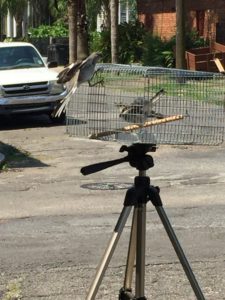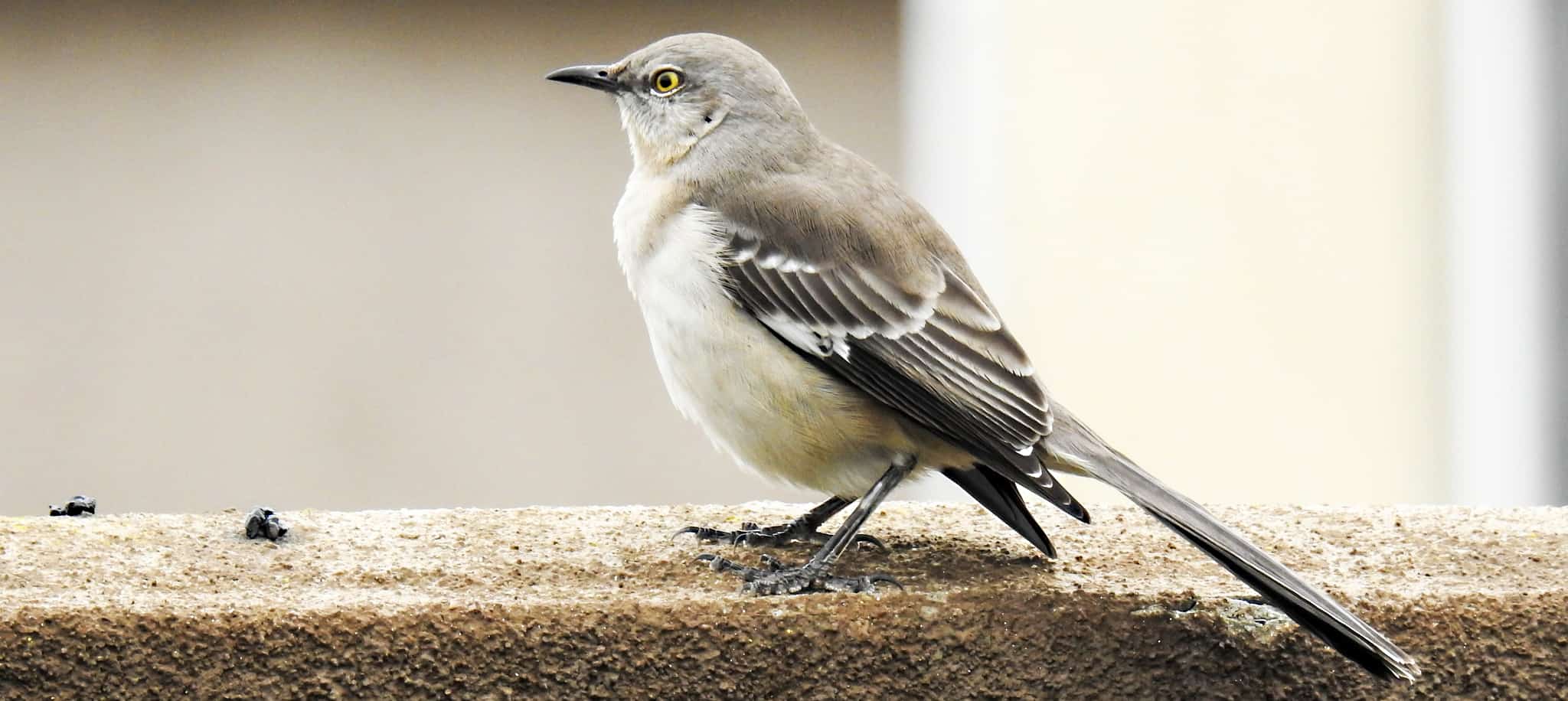Share this article
Lead linked to aggression in mockingbirds
Mockingbirds (Mimus polyglottos) are known to be a territorial species, but researchers recently found that the presence of lead in the environment can make them even more territorial and aggressive.
In a study published in Science of the Total Environment, lead author Stephanie McClelland, who is currently a PhD student at Royal Holloway University of London, and her team looked at the aggression of urban mockingbirds in New Orleans, comparing those in neighborhoods with high and low levels of lead in the soil. McClelland conducted the research as part of her master’s work at Tulane University in New Orleans.
“We first noticed how aggressive they were in neighborhoods that had high lead as an observation,” McClelland said. “We looked into it a bit more, and there was a strong difference.”
The team put up a taxidermized mockingbird in a threatening position — with its wings out — in a male mockingbird’s territory. “We would hear the male singing and would know that’s the center of the territory,” McClelland said. “That would give us an idea of where their turf is.”

Researchers placed a cage around a mockingbird mount to protect it from aggression by live mockingbirds. ©Stephanie McClelland
Then, they played a recording of the birds’ song to see how mockingbirds responded in different neighborhoods. It became clear the birds in the high lead neighborhoods were more aggressive.
“Some of them would respond so strong, we had to put a protective cave around the stuffed mockingbird,” she said. “They would tear it to bits if they got at it.” In less obvious displays, males posed with their wings open, strutted in slow motion to display wing feathers, hopped on lines above the mount, raised their tails and made aggressive chirping noises.
In lower lead areas, however, the mockingbirds only showed a little bit of an interest in the stuffed intruder, and only sometimes.
The researchers then captured a few of the birds in the neighborhoods they studied to take blood and feather samples and test for lead. They found that lead in the soil in these neighborhoods also showed up in the birds.
It’s important to consider what effects more aggressive behavior may have on mockingbirds, McClelland said. For example, more aggression means using more energy, possibly reducing the energy they have left to feed their young or protect nests from predators. It may even affect their lifespan if they wear themselves down too quickly, she said.
And it’s not only mockingbirds that lead may be affecting, she said.
“They’re really quite a nice example to be able to see the effects,” McClelland said “but they’re not the only ones being exposed.”
Header Image:
Mockingbirds show aggressive behavior in neighborhoods where there’s more lead in the soil.
©Stephen Lester








